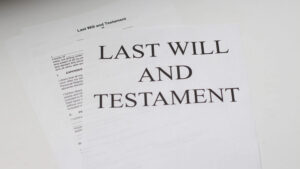 A recent case of Rainey v Weller illustrates this problem although this particular case predates the current Covid pandemic.
A recent case of Rainey v Weller illustrates this problem although this particular case predates the current Covid pandemic.
In this case 2 Wills were prepared apparently by Mrs Weller just one month apart. The first we shall call the February Will 2018 which was prepared by Mrs Weller’s solicitors and left everything to her niece and appointed her as her sole executrix.
Another which was prepared in March 2018 from an online Wills Template leaving everything to her 3 grandchildren and appointing her son as sole executor.
The court had to decide if the later Will was genuine or not.
The court held that it was unlikely Mrs Weller would have changed her Will so dramatically in just a month.
Also why had she not gone back to her solicitors to make the changes?
A handwriting expert was also called to give evidence also confirmed the signature was not likely to be genuine.
As we are aware due to the current Covid pandemic we have been in lockdowns, some shielding and socially isolating. All of this has caused problems for the normal execution of Wills.
Under the Wills act 1837 no Will is valid unless it is in writing and signed by the Testator (person making the Will).
The testator signs the Will in front of the two witnesses present at the time.
Each witness signs the Will in the presence of the testator but not necessarily at the same time.
However due to Covid and the challenges of carrying out the above the Government relaxed the rules to allow Wills to be dealt with via video conferencing with Wills being witnessed virtually by Zoom and Facetime.
The case of Casson v Dade 1781 allows for this where a maid witnessed a Will through a window being signed and this was held to be sufficient for the Will to be valid.
However, there may be claims in the future where such Wills have been prepared during such means during Covid especially if a relative has been left out of the Will, challenging the Testators capacity or whether the signature is in fact a forgery.
All of this can be avoided by seeking a professional to draft your Will. A professional should keep detailed records on file such as attendance notes, record your written reasons for excluding a family member, together with a letter of wishes and perform and record capacity assessments so that you can hopefully avoid any potential issues after your death.
Contact us today to arrange an appointment to discuss your Will.